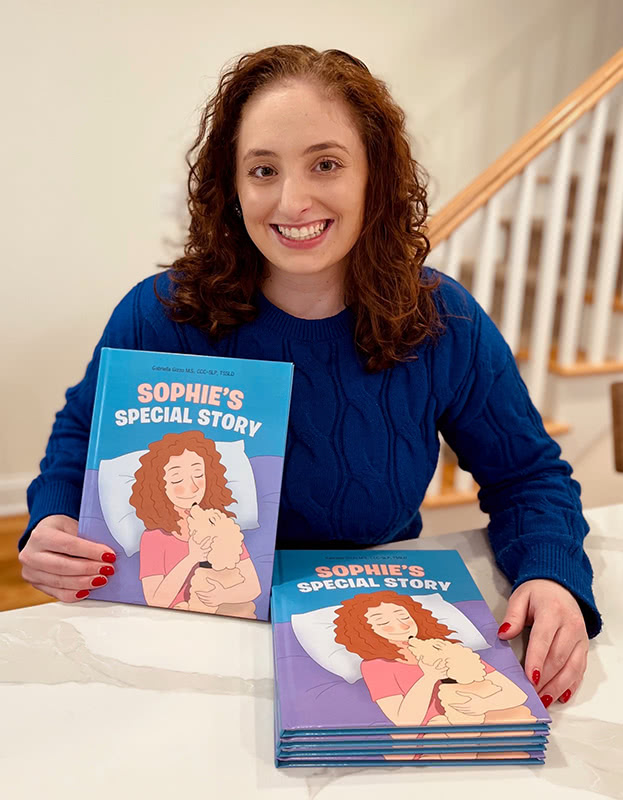Q&A with Gabriella Gizzo, author of "Sophie’s Special Story"
Speech-Language Pathologist and 2016 Grad Authors Children’s Book to Promote Communication Skills
Even as a child growing up in West Harrison, New York, Gabriella Gizzo, ’16, M.S., CCC-SLP, knew that she wanted to be a speech-language pathologist. She enrolled at Loyola University Maryland to pursue her B.S. in Speech-Language-Hearing Sciences, and today she serves students in preschool through grade 5 in the Hartford, Connecticut, school district.
Gizzo just published her first children’s book, Sophie’s Special Story, starring Gizzo’s toy poodle, Sophie, with the goal of encouraging articulation and reading.
She recently spoke to Loyola magazine about her work as a speech pathologist and her plans to write and publish additional Sophie stories; she is currently working on a second book featuring Sophie that will target different communication goals and provide a resource for speech therapists and families alike.

How did the idea of Sophie’s Special Story come to be?
The purpose of this book was to creatively target speech and language goals through Sophie’s experiences. This book is about the special bond between an owner and her dog, Sophie—based on me and my dog that I’ve had since graduate school. Sophie proved a perfect protagonist for my story. The storyline details Sophie's adventures and her development.
In real life, Sophie loves to meet and interact with new people. She enjoys peanut butter and bacon, her two daily walks, and playing tug-of-war with her rope toys.
What inspired you to write a children’s book?
Speech therapists need resources that can target many goals, because when we see students in groups, the individual students have different goals. One of the ways you can target many goals is with books, and so I wrote Sophie’s Special Story with the hopes that it would reach as many children as possible—and so that educators, parents, and other speech therapists would have access to a fun and creative way to target communication goals.
Can you share your methodology in writing Sophie’s Special Story?
Research shows the connection between language and literacy. Many of my students struggle in both areas, and it directly impacts their classroom performance. That’s why it is so important to practice these skills.
I love that my book can be used to target many different articulation and language goals, such as answering questions, expanding phrases or sentence structure, labeling objects, and producing certain words and clusters. These goals are important for young children, because they are the foundation for language and literacy skills.
Parents of my students are always asking for ways that they can support their children’s communication at home, so I also included verbal and visual models in the book, so they can help foster these skills.
What’s your favorite thing about your work as a speech-language pathologist?
Everyone deserves the right to communicate. I love working with children because it’s so rewarding. I couldn’t see myself doing anything else.
What do you remember most about your time at Loyola?
My time at Loyola was truly one of growth and transformation. I was introverted and unsure of myself when I arrived at Loyola; I had never left my small hometown in New York. By senior year, my confidence had increased, and I was my own self advocate. I didn’t know it at the time, but while I was getting an education in helping others communicate and find their voice, I was also finding mine.